Central African Republic
The long-awaited first trial of the Special Criminal Court of the Central African Republic opened on Monday but was immediately postponed to May 16.
The court, known by its French acronym CPS, was set up in the capital Bangui seven years ago to prosecute war crimes, genocide and other crimes against humanity committed in the country since 2003.
Unique for being in a country that is still in civil war, the trial could have been a key moment in fostering accountability in a country scarred by decades of violence.
The case on Monday involves three suspects – Issa Sallet Adoum, also known as Bozize, Ousman Yaouba and Mahamat Tahir – who were members of the Return, Reclamation, Rehabilitation (3R) armed group, one of the most powerful rebel movements in the country.
They are accused of being responsible for the massacre of 46 civilians in two villages near the northwestern town of Paoua in May 2019.
The initial date of the trial’s first hearing was set for April 19, but a no-show of the defendants’ lawyers due to disagreements over their wages delayed the opening.
It was postponed again as "the lawyers for the defence and those for the civil parties have asked the court for a postponement because they feel that they are not ready," Paul Yakola, a lawyer for one of the defendants explained.
Alain Wabibikaye, a prosecutor at SCC believes this was just a delaying tactic: "because we have followed this entire procedure with them from start to finish for three years and they had access to this procedure at all times, so it is not today that they can ask for a postponement to allow them to organize themselves."
For Francine Evodine Ndémadé, coordinator of the victims' association it is the victims who suffer due to the delays:
"It's been postponed too many times, postponed, postponed, we can't understand. It's really always devastating for the victims, and finally, we don't understand anything anymore and we are obliged to wait."
The unique hybrid court is composed of 11 international and 10 domestic judges (from the Central African Republic, France, Togo and the Democratic Republic of Congo (DRC) working along with the ICC.
The United Nations-backed court has a five-year mandate renewable only once as the court is supposed to progressively hand over to the domestic judiciary system.
Its functioning is seen as a milestone for a country where the rule of law has been battered by years of intercommunal fighting, broken ceasefire agreements and mass atrocities often undocumented and carried out with impunity.
The court was created in 2015 when the country, the second least developed country in the world according to the UN, was two years into a civil war which has decreased in intensity since 2018.
Its creation shows that a judicial mechanism can be set up also in countries in the midst of a conflict.




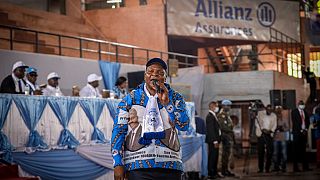
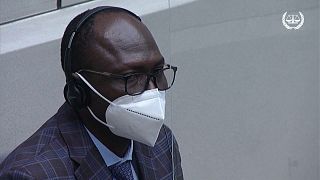
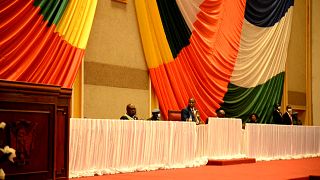
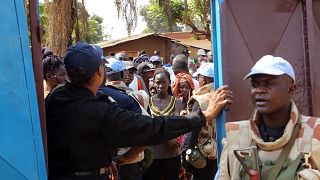
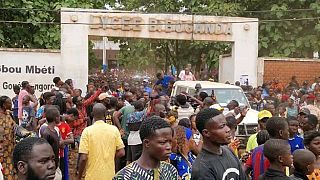
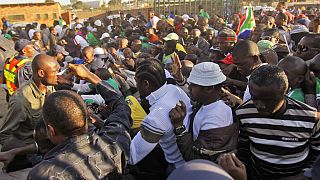



Go to video
"Enough Is Enough": Liberians protest for justice, jobs, and accountability
01:44
Brazil coach Ancelotti sentenced to one year in prison for tax fraud
01:37
Top European court delivers series of damning rulings against Russia
01:11
Legal complaint targets family of DRC's Félix Tshisekedi for looting
00:53
Football: Mbappé drops criminal complaint against PSG
02:37
Amnesty International denounces lack of investigation into activists' abduction